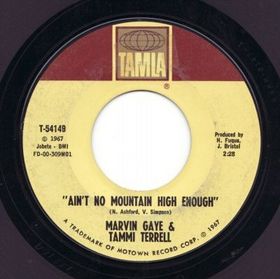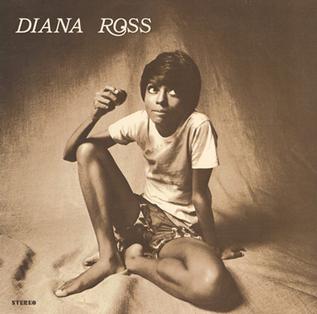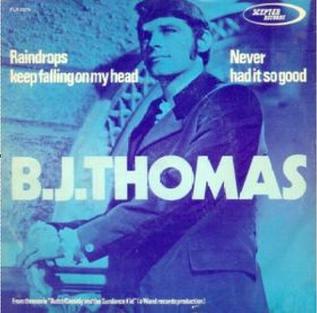
In arithmetic and number theory, the least common multiple, lowest common multiple, or smallest common multiple of two integers a and b, usually denoted by lcm(a, b), is the smallest positive integer that is divisible by both a and b. Since division of integers by zero is undefined, this definition has meaning only if a and b are both different from zero. However, some authors define lcm(a,0) as 0 for all a, since 0 is the only common multiple of a and 0.
Rhythm and blues, frequently abbreviated as R&B or R'n'B, is a genre of popular music that originated in African-American communities in the 1940s. The term was originally used by record companies to describe recordings marketed predominantly to urban African Americans, at a time when "urbane, rocking, jazz based music with a heavy, insistent beat" was becoming more popular. In the commercial rhythm and blues music typical of the 1950s through the 1970s, the bands usually consisted of piano, one or two guitars, bass, drums, one or more saxophones, and sometimes background vocalists. R&B lyrical themes often encapsulate the African-American experience of pain and the quest for freedom and joy, as well as triumphs and failures in terms of relationships, economics, and aspirations.

The Isley Brothers are an American musical group originally from Cincinnati, Ohio, that started as a vocal trio consisting of brothers O'Kelly Isley Jr., Rudolph Isley and Ronald Isley in the 1950s. With a career spanning over eight decades, the group has enjoyed one of the "longest, most influential, and most diverse careers in the pantheon of popular music".

Clarence George Carter is an American blues singer, songwriter, musician and record producer. His most successful songs include "Slip Away", "Back Door Santa", "Patches" (1970) and "Strokin" (1986).

Tyrone Davis was an American blues and soul singer with a long list of hit records over more than 20 years. Davis had three number 1 hits on the Billboard R&B chart: "Can I Change My Mind" (1968), "Turn Back The Hands Of Time" (1970), and "Turning Point" (1975).

"Someday We'll Be Together" is a song written by Johnny Bristol, Jackey Beavers, and Harvey Fuqua. It was the last of twelve American number-one pop singles for Diana Ross & the Supremes on the Motown label. Although it was released as the final Supremes song featuring Diana Ross, who left the group for a solo career in January 1970, it was recorded as Ross' first solo single and Supremes members Mary Wilson and Cindy Birdsong do not sing on the recording. Both appear on the B-side, "He's My Sunny Boy".

"Ain't No Mountain High Enough" is a pop/soul song written by Nickolas Ashford & Valerie Simpson in 1966 for the Tamla label, a division of Motown. The composition was first successful as a 1967 hit single recorded by Marvin Gaye and Tammi Terrell, and became a hit again in 1970 when recorded by former Supremes frontwoman Diana Ross. The song became Ross's first solo number-one hit on the Billboard Hot 100 chart and was nominated for the Grammy Award for Best Female Pop Vocal Performance.

"Up the Ladder to the Roof" is a 1970 hit single recorded by The Supremes for the Motown label. It was the first Supremes single to feature new lead singer Jean Terrell in place of Diana Ross, who officially left the group for a solo career two weeks before the recording of this song in January 1970. This song also marks a number of other firsts: it is the first Supremes single since "The Happening" in 1967 to be released under the name "The Supremes" instead of "Diana Ross & The Supremes", the first Supremes single solely produced by Norman Whitfield associate Frank Wilson, and the first Supremes single to make the United Kingdom Top 10 since "Reflections" in 1967.

Diana Ross is the eponymous debut studio album by American singer Diana Ross, released on June 19, 1970 by Motown Records. The ultimate test to see if the former Supremes frontwoman could make it as a solo act, the album was overseen by the songwriting-producing team of Nickolas Ashford & Valerie Simpson, who had Ross re-record several of the songs the duo had recorded on other Motown acts. Johnny Bristol, producer of her final single with The Supremes, contributed on The Velvelettes cover "These Things Will Keep Me Loving You."
Contemporary R&B is a popular music genre that combines rhythm and blues with elements of pop, soul, funk, hip hop, and electronic music.

"Abraham, Martin and John" is a 1968 song written by Dick Holler. It was first recorded by Dion, in a version that was a substantial North American chart hit in 1968/69. Near-simultaneous cover versions by Smokey Robinson and the Miracles and Moms Mabley also charted in the U.S. in 1969, and a 1969 version by Marvin Gaye was the hit version in the UK. It was also a hit as part of a medley for Tom Clay in 1971, and has subsequently been recorded by many other artists.

Beatrice Melba Hill or Beatrice Melba Smith, known by her stage name Melba Moore, is an American singer and actress.
In statistics, a rank correlation is any of several statistics that measure an ordinal association—the relationship between rankings of different ordinal variables or different rankings of the same variable, where a "ranking" is the assignment of the ordering labels "first", "second", "third", etc. to different observations of a particular variable. A rank correlation coefficient measures the degree of similarity between two rankings, and can be used to assess the significance of the relation between them. For example, two common nonparametric methods of significance that use rank correlation are the Mann–Whitney U test and the Wilcoxon signed-rank test.

"The Thrill Is Gone" is a slow minor-key blues song written by West Coast blues musician Roy Hawkins and Rick Darnell in 1951. Hawkins' recording of the song reached number six in the Billboard R&B chart in 1951. In 1970, "The Thrill Is Gone" became a major hit for B.B. King. His rendition helped make the song a blues standard.
Top R&B/Hip-Hop Albums is a music chart published weekly by Billboard magazine that ranks R&B and hip hop albums based on sales in the United States and is compiled by Nielsen SoundScan. The chart debuted as Hot R&B LPs in the issue dated January 30, 1965, in an effort by the magazine to further expand into the field of rhythm and blues music. It then went through several name changes, being known as Soul LPs in the 1970s and Top Black Albums in the 1980s, before returning to the R&B identification in 1990 and affixing a hip hop designation in 1999 to reflect the latter's growing sales and relationship to R&B during the decade.

"Everybody's Got the Right to Love" is a socially conscious–inspired pop song written by Lou Stallman, produced by Frank Wilson and released as a single in 1970 by Motown group The Supremes, who took the song into the top forty in mid-1970 following the release of "Up the Ladder to the Roof".
"Call Me" is a song written and recorded by American singer Aretha Franklin. The song was co-produced by Jerry Wexler, Tom Dowd and Arif Mardin.

The Four Tops are an American vocal quartet from Detroit who helped to define the city's Motown sound of the 1960s. The group's repertoire has included soul music, R&B, disco, adult contemporary, doo-wop, jazz, and show tunes.

"Raindrops Keep Fallin' on My Head" is a song written by Burt Bacharach and Hal David for the 1969 film Butch Cassidy and the Sundance Kid. The uplifting lyrics describe somebody who overcomes his troubles and worries by realizing that "it won't be long 'till happiness steps up to greet me."